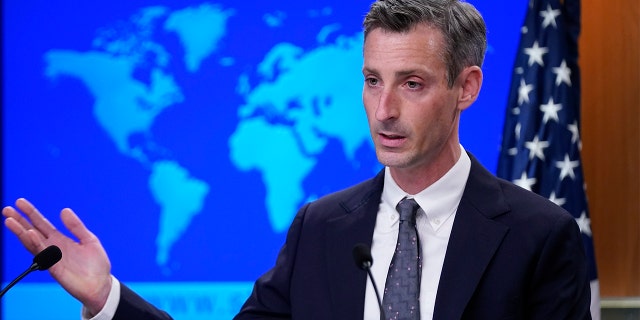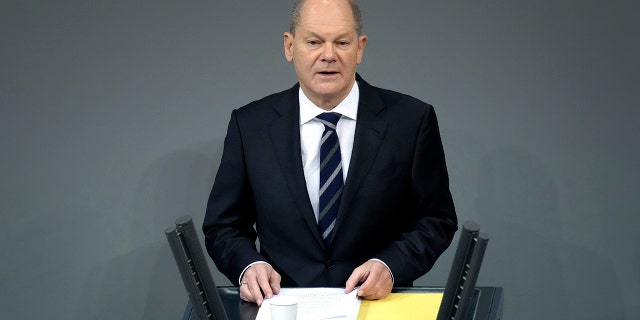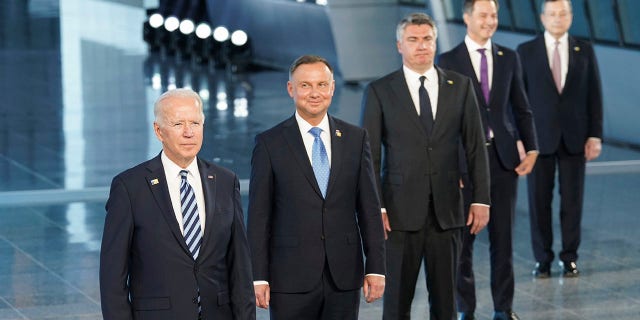State Dept. says no signs of Russian deescalation toward Ukraine, defends NATO unity

Pompeo: Biden needs to demonstrate leadership the way he said he would
Former Secretary of State Mike Pompeo explains the importance of American credibility as world watches Russia-Ukraine situation on ‘The Story.’
In a terse State Department briefing Tuesday, spokesman Ned Price said that there has been no indication that diplomatic talks with Russia have alleviated tensions on the Ukrainian border.
“We have been very clear,” Price told reporters. “There is not a precondition for dialogue in diplomacy, but there is a precondition for that dialogue … moving in the right direction.
“I don’t think we’ve seen any concrete indications of deescalation just yet,” he added.
State Department spokesperson Ned Price speaks during a press briefing at the U.S. State Department in Washington.
(AP Photo/Patrick Semansky, Pool)
The briefing became unusually heated when Price was asked about NATO member-nations appearing to deviate from U.S. assurances that the alliance will show a united front should Russia invade Ukraine.
Last week, German Chancellor Olaf Scholz attempted to clear the air following reports that Berlin may not support severe economic sanctions on the Nord Stream 2 pipeline, which the U.S. and NATO have threatened the Kremlin with.
Scholz said the newly appointed government would uphold the U.S.-Germany agreement forged in July 2021 between President Biden and former Chancellor Angela Merkel.
German Chancellor Olaf Scholz delivers a speech during a meeting of the German federal parliament, Bundestag, at the Reichstag building in Berlin, Germany.
(AP Photo/Michael Sohn)
But the government’s refusal to transfer defense weapons to Kyiv in coordination with the U.S. and U.K. has left some questioning how tight the alliance truly is.
“The alliance is united,” Price told reporters. “There is no question about this. You have heard this in the form of communiques and statements from the alliance itself — you don’t have to take my word for it.”
“Countries have different authorities, different norms, different traditions,” he continued, instead highlighting the amount of support the U.S. has provided Ukraine.
“We have had in-depth conversations with all of our NATO allies about the deterrent measures that we are prepared to take,” Price added.
President Joe Biden and other NATO heads of the states and governments pose for a family photo during the NATO summit at the Alliance’s headquarters, in Brussels, Belgium.
(Kevin Lamarque/Pool via AP)
The U.S. has put 8,500 troops on high alert, notifying them that they could be deployed to Europe should Russian President Vladimir Putin invade Ukraine.
The U.S. last week said an additional $200 million will be provided to Kyiv to assist with defensive military aid. Additionally, the State Department authorized the transfer of U.S.-made missiles from Baltic NATO member nations.
“Different NATO allies are contributing in different and meaningful ways,” Price said.
Though Germany has refused to send military assistance to Ukraine, German Defense Minister Christine Lambrecht said in a Saturday that Berlin will send a field medical facility to Ukraine in February, reported German news outlet Deutsche Welle.
Source: Read Full Article




